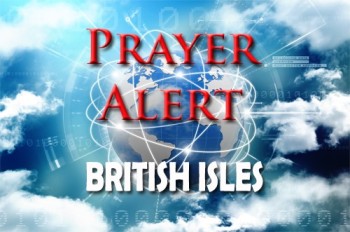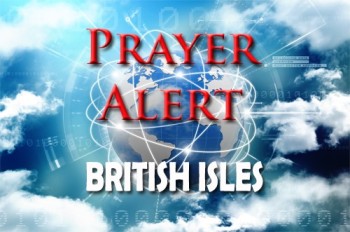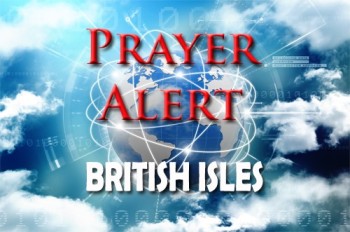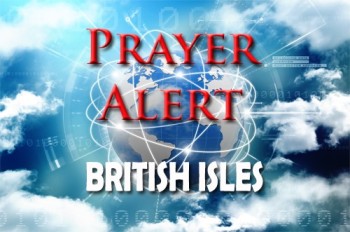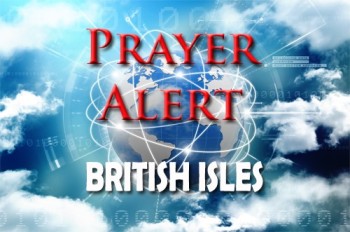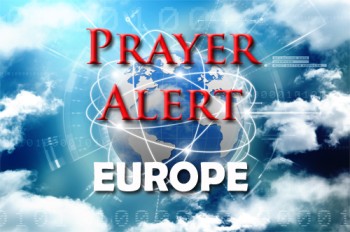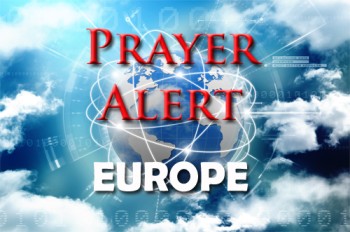
Synagogue terrorist told police he killed ‘in name of IS’
Police have confirmed that Jihad al-Shamie, 35, phoned 999 claiming allegiance to IS moments after launching his deadly car and knife attack at Heaton Park synagogue in Manchester. Shamie drove into worshippers before stabbing several people, killing two men - Adrian Daulby and Melvin Cravitz - who tried to stop him entering the synagogue. Wearing a fake suicide vest and armed with two knives, he was shot dead by police. Investigators say no evidence links him to organised terror networks, describing him as a possible 'lone wolf’. The swift actions of security staff, worshippers, and armed officers prevented greater loss of life. The Independent Office for Police Conduct is now examining whether police gunfire contributed to Daulby’s death or other injuries. Shamie, a Syrian-born British resident on bail for alleged rape, had a history of abusive relationships and disturbing radical views. The community remains in shock, mourning the victims while praising the courage of those who confronted the attacker and protected the congregation.
Young children taking knives to school, BBC finds
A BBC investigation has revealed that even very young children are taking knives into UK schools. Police recorded cases involving a four-year-old in Kent and a six-year-old in the West Midlands carrying a flick knife and threatening another pupil. In 2024, there were 1,304 knife-related incidents in schools and sixth-form colleges across England and Wales - 10% involving primary-age children. Though total offences have slightly declined, serious attacks have increased. Some schools, especially in high-risk areas such as the West Midlands, are now installing permanent 'knife arches' and handheld detectors. The mother of 15-year-old Sheffield pupil Harvey Willgoose, who was fatally stabbed at school earlier this year, is urging the government to fund metal detectors nationwide, saying, 'Kids are going to school frightened’. Police data shows most offenders are teenage boys, often carrying blades for self-protection. Educators and youth mentors warn that fear, broken families, and lack of community support are fuelling this crisis and are calling for deeper emotional education and stronger pastoral care.
Met will root out corrupt police after 'ghastly' BBC exposé, says chief
Metropolitan Police commissioner Sir Mark Rowley has vowed to use counter-terrorism-style investigation techniques to root out racism and corruption following a 'ghastly' BBC Panorama exposé of officers at Charing Cross police station. The undercover documentary revealed serving officers making racist, misogynistic and anti-Muslim remarks, boasting of excessive force, and dismissing rape allegations. Nine serving officers, a former officer, and a detention officer are under investigation for gross misconduct. Sir Mark described the revelations as 'reprehensible' and compared corrupt officers to tumours which must be cut out. He said AI tools would help detect misconduct by analysing phones and behaviour patterns, adding that nearly 1,500 staff have already been removed in the Met’s 'biggest anti-corruption clear-out in history’. Leadership and staffing changes have already been made, with further disciplinary action expected. While Sir Mark rejected claims of institutional racism, critics insist deep systemic reform is still needed to restore trust in policing across London.
‘Abject failure’ as UK homeless deaths rise
New figures reveal that at least 1,611 homeless people, including 11 children, died in the UK in 2024, a 9% increase from the previous year. The Museum of Homelessness, which compiles annual data from coroners, councils, and memorials, warns that the true number is probably higher. 44% of deaths were linked to drug or alcohol misuse. Most occurred in England (1,142), followed by Northern Ireland (211), Scotland (168), and Wales (90). Many victims were living in temporary accommodation such as hostels or bed-and-breakfasts rather than on the streets. Homelessness minister Alison McGovern called the figures an 'abject failure that cannot be tolerated’, pledging to expand safe housing and support services. The charity’s director, Matthew Turtle, said the data shows how homeless people continue to be 'deeply failed' and urged urgent government action. With over 131,000 households now in temporary housing, campaigners say sustained investment, care, and community support are vital to prevent further needless deaths.
Bishop of Birmingham ‘dismayed’ by Robert Jenrick’s remarks about Handsworth
The Bishop of Birmingham, Dr Michael Volland, has expressed 'dismay and disappointment' over comments made by Conservative MP Robert Jenrick, who said that during a visit to Handsworth he 'didn’t see another white face' and described the area as 'close to a slum’. Speaking at a Conservative event in March, Jenrick said the district lacked integration, remarks later published by the Guardian. Dr Volland responded in an open letter, inviting Jenrick to revisit Handsworth and meet local residents dedicated to the community’s flourishing. He warned that such rhetoric risks 'stirring up division' and urged leaders to use language that unites rather than divides. The bishop highlighted positive examples of integration, including St Michael’s Church of England Primary Academy, which recently received an Outstanding Ofsted rating. Conservative leader Kemi Badenoch defended Jenrick’s comments as 'factual observations’, while others - including the Prime Minister - criticised his judgment. Dr Volland reiterated the Church’s call to build understanding, mutual respect, and community cohesion across all ethnic and faith backgrounds. See
France: new PM to be named within 48 hours?
Emmanuel Macron is expected to appoint a new prime minister within 48 hours, following the abrupt resignation of Sébastien Lecornu’s government just 14 hours after being named. Lecornu, asked to outline a path forward, concluded that most lawmakers oppose snap elections and that a narrow parliamentary plurality could support a 2026 budget aimed at reducing France’s deficit, projected at 5.4 percent of GDP. Macron now faces the challenge of naming a leader capable of governing without a parliamentary majority - the same obstacle that brought down Lecornu’s predecessors. Choosing a centre-left prime minister from the Socialist Party could help build a coalition but would probably reignite controversy over Macron’s contested pension reform, which raised the retirement age. With political divisions deepening, Macron has yet to comment publicly, while far-right leader Marine Le Pen and her party have said they would vote to topple any new prime minister named before new elections, intensifying France’s ongoing political instability. For an assessment of Macron’s options, see
Europe: EC proposes drastic cut in steel imports, doubles tariffs
The European Commission has proposed halving the volume of steel imports entering the EU duty-free - from 30.5 million to 18.3 million tonnes annually - and doubling tariffs on imports exceeding that quota to 50%. The move, announced by EC president Ursula van den Leyen, aims to protect the struggling European steel industry, which operates at just 67 percent capacity and faces heavy competition from cheap, subsidised steel, especially from China. Global steel overcapacity, now at 600 million tonnes, is projected to exceed 720 million next year, pressurising European producers and leading to the loss of 18,000 jobs across the bloc. The new measures, including a ‘melt and pour’ rule to trace steel origins, are designed to curb tariff circumvention and lift EU production to 80% capacity use. While the plan also affects US imports, Brussels hopes for cooperation with Washington to address global surpluses. The proposal now awaits approval from EU member states and the European Parliament.
Gaza: what we know so far about ceasefire agreement
After three days of indirect talks in Egypt, Donald Trump announced that Israel and Hamas have ‘signed off’ on the first phase of his twenty-point peace plan to end the Gaza war. The agreement, expected to be approved by Israel’s cabinet, includes an immediate ceasefire and the release of all remaining living hostages - around 20 people - within 72 hours. Israel will begin withdrawing troops to a line controlling roughly 53% of Gaza, while Hamas will return the bodies of 28 dead hostages. In exchange, Israel will release about 250 Palestinian prisoners serving life sentences and 1,700 Gaza detainees, but not including key figures like Marwan Barghouti. Hundreds of aid trucks will begin entering Gaza daily to address famine conditions. Later phases of the plan envision Gaza’s demilitarisation, temporary rule by Palestinian technocrats under an international ‘Board of Peace’ chaired by Trump, and eventual transfer to a reformed Palestinian Authority - points that remain deeply contentious between Israel and Hamas. Earlier in the week, on 7 October, 30,000 gathered in Tel Aviv in an emotional event marking the second anniversary of Hamas’s attacks: see
ASEAN: China’s shift towards green technology may inspire others
The strengthened commitment by China to cutting emissions and expanding renewable energy production may well accelerate Southeast Asia’s transition to a low-carbon economy. Analysts note that, as one of ASEAN’s key investors and trading partners in clean technology, China’s policies could encourage member states to attract more green investment while pursuing economic growth. Xi Jinping’s new climate targets include reducing greenhouse gas emissions by up to 10 percent from peak levels by 2035, expanding wind and solar capacity to 3,600 gigawatts, and increasing nonfossil fuels to over 30 percent of total energy use. Experts say these goals will boost affordable renewable technologies (eg solar panels, wind turbines, and batteries) across ASEAN, fostering energy security and resilience. China’s $2.7 billion clean-energy investment and $4.3 billion trade with ASEAN could inspire other members to align with the global shift toward sustainable development and climate responsibility.
USA: government shutdown now in its second week
The US government shutdown has entered its second week as the Senate again failed to pass competing bills to restore funding, deepening the political stalemate. Democrats and Republicans remain divided over whether to pair any funding bill with healthcare measures, particularly an extension of Affordable Care Act premium tax credits set to expire at the end of the year. The lapse in funding has forced federal offices, national parks, and agencies to close, with mounting pressure from unpaid workers and disruptions at airports and air traffic control centres (see) House speaker Mike Johnson insists the GOP’s short-term funding bill is sufficient, while a top Democrat has accused Republicans of refusing to negotiate. Donald Trump continues to urge Democrats to accept the Republican plan, though some within the GOP have hinted at compromise. Without agreement, hundreds of thousands of military and civilian personnel will soon miss paychecks, further straining families and testing public patience with political gridlock.

